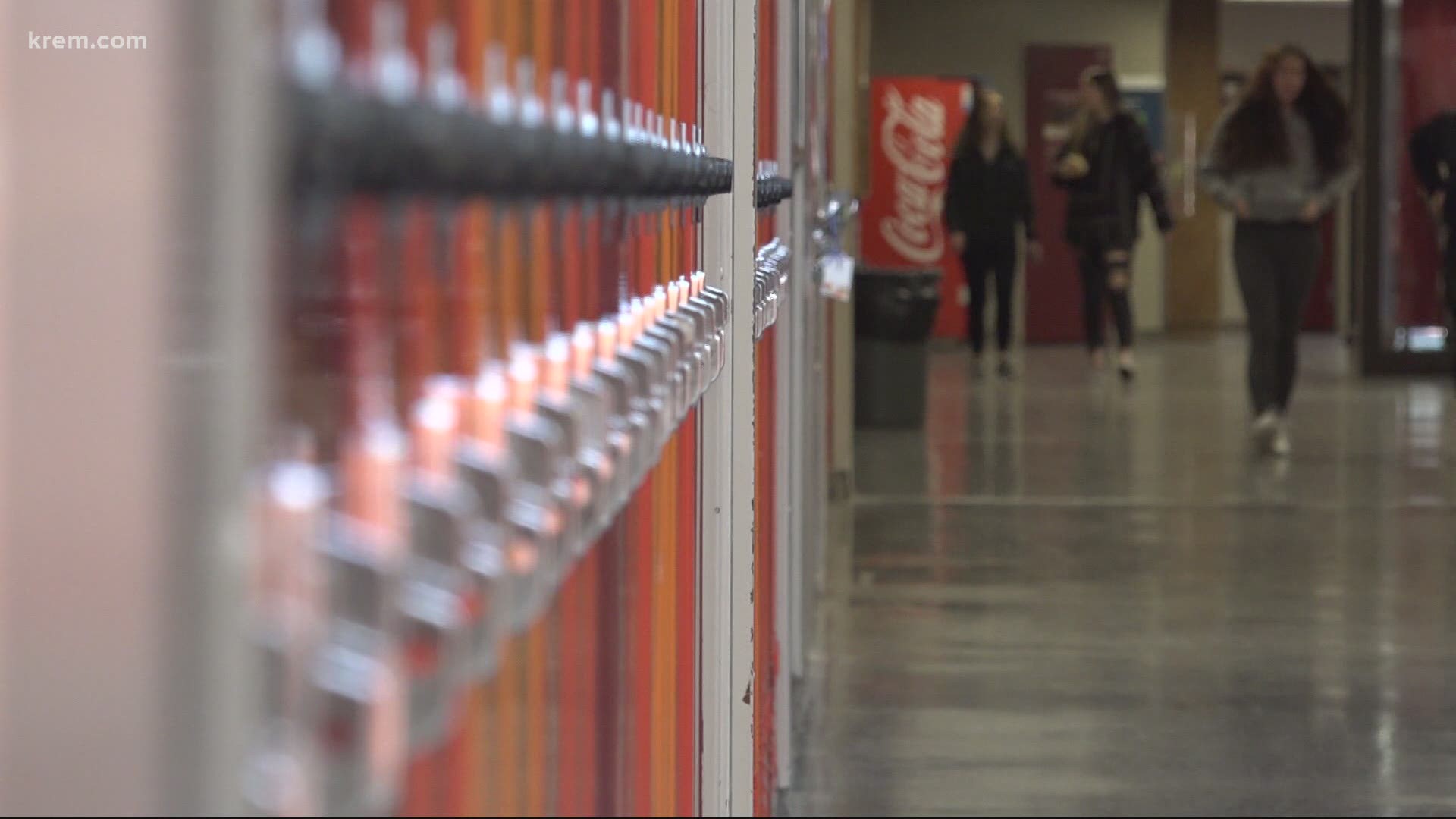SPOKANE, Wash. — Spokane Public Schools students will begin their first day of online instruction for the 2020-2021 school year on Monday, Sept. 14.
Spokane Schools Superintendent Dr. Adam Swinyard chatted with KREM about the first day and the district's hopes for the school year. You can find the conversation below.
This conversation has been lightly edited for length and clarity.
Q: Of course, this is an unprecedented time. How did the district prepare for today?
Dr. Swinyard: Our staff has invested countless hours over the last several months to collect input from families and students, collaborate with each other, engage in training, and really put together a really intentional plan to start the year in a distance learning model.
That's not what we hoped for, we desperately want our students in our building, and we're eager to phase back when we receive guidance from public health officials to do so.
Q: Do you think students will be back in the classroom this year?
Dr. Swinyard: I think it's really difficult to predict. This pandemic has been really challenging for anyone to forecast what's going to happen or how the conditions may or may not change.
We're enthused and we're optimistic that there seems to be a leveling of the case count in Spokane county, and we're just really encouraging everyone in our community to continue to follow the safety guidelines and protocols related to wearing masks and social distancing.
We want those numbers to continue to go down and to flatten out so we can receive the guidance from public health officials to start phasing back into our schools.
Q: We know the district hosted parent-teacher conferences last week. What did parents have the most questions about?
Dr. Swinyard: We were really fortunate to start the year with conferences, in fact, it's something we may continue doing indefinitely into the future, just to have the opportunity to sit down between parents, students, teachers and talk about how the year is going to go, talk about the student, talk about the digital tools.
Lots of different things were able to be covered around logging on, how to navigate the platform we'll be using this year.
We think it set a really strong foundation to begin in a distance learning environment that is still going to take a lot of adjustment for everyone.
Q: With the shift from traditional learning, how is the district making sure students don't fall behind with online learning?
Dr. Swinyard: We're going to be closely monitoring attendance, so this is a real-time school day. School starts today at 8:30, we expect everyone to log in, we'll be taking attendance as we will in a typical school day.
When students aren't participating, or not engaging in their activities, we're going to be working really hard to come alongside that family and student, support them, seek to really understand what barriers might be inhibiting them to be successful in a distance learning model, and then deploy interventions that we have at our disposal to do that.
We're really grateful for the incredible work our staff has done preparing for this. They love kids, they're so eager and committed to making the best of this, and we're really grateful to our community partners and parents who are stepping up.
That's what makes Spokane such a great and special place, is everyone is focused on doing what's best for kids in this moment, and working and partnering together.
Q: Now you mentioned teachers as well, some of the unsung heroes here. How is the district supporting teachers?
Dr. Swinyard: Those working in public education are absolutely some of the heroes of this pandemic, our classified staff, our certificated staff, from providing meal services to kids, to checking out technology, to providing instruction in a virtual classroom.
They've invested so much in trying to prepare and make the best of this situation and they've participated in a significant amount of professional development over the summer. Many have given up their personal time, given up opportunities away from families and friends to engage in that professional learning, collaborate, and learn to use these tools and best practices for a digital environment, how to keep kids engaged.
We don't want kids staring at a screen all day and it takes a lot of skill and a lot of planning and preparing that keeps kids moving, keeps a lot of novelty for students so that they're not just stuck in one experience looking at a computer model all day.
Q: With online learning, do you think snow days are going to be a thing of the past?
Dr. Swinyard: Well that's something we'll be evaluating. It's common practice in the midwest part of the country for districts, when there's a significant snow event, to have a virtual day.
And we're really fortunate to have such a strong foundation of having access to technology for our students to have laptops. We're working really hard on internet connectivity. Families can reach out if they have any issues connecting to the internet or don't have access, we're able to work through that with them. We've developed some partnerships with the business community to help support families in those situations.
So we'll be evaluating what snow days look like in the future, and it's very possible that we may approach it similar to some of those midwest districts that if there's a snow event, we would have our students and our staff preparing to do a virtual day.
So there's still some planning related to that that we need to do, and it could be part of our new normal. You know, this has been a really challenging circumstance and it's been harmful to our kids and our communities in so many ways, and we're going to be optimistic and hopeful, and try to learn from this experience the best we can and try to make us stronger into the future.

